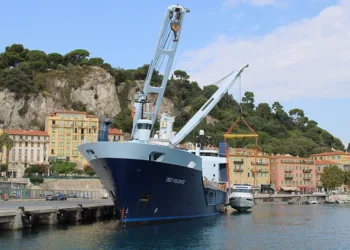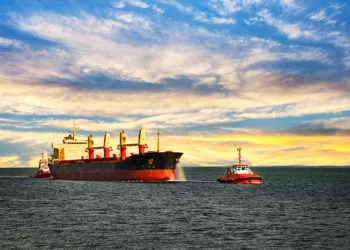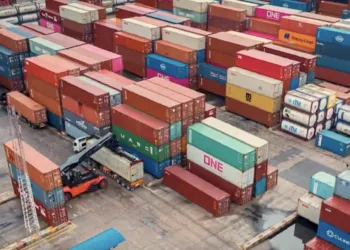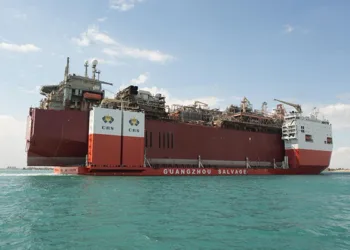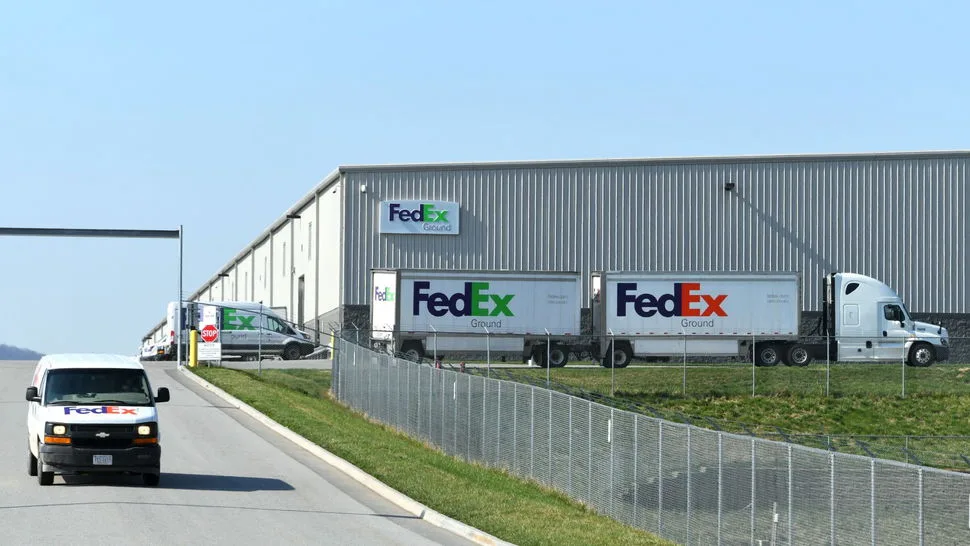If you’ve ever wondered how a company with trucks falling apart and drivers dodging scales can stay in business—don’t blame the carrier. Blame the system that let them in and never bothered to check if they belonged.
The FMCSA (Federal Motor Carrier Safety Administration) is supposed to be the gatekeeper of safety in our industry. Their job is to make sure only qualified drivers and carriers are on the road. But what’s happening in reality tells a different story—one that’s hard to ignore once you see the numbers.
Let’s get into it.

(Source: 2023 Pocket Guide to Large Truck and Bus Statistics.)
94% of Interstate Carriers Have No Safety Rating—And That’s Not a Typo
According to FMCSA data from 2021, there were 690,091 interstate freight carriers in the system. Out of that number, 646,777 had no safety rating at all. That’s over 94% of carriers operating with zero verified safety audit, zero on-site inspection, and zero accountability beyond what’s self-reported. 2022 data, the numbers only increased.
What does that actually mean? It means you can start a trucking company, put equipment on the road, hire drivers with questionable training—and the government might never even glance in your direction.
It also means brokers, shippers, and even insurance companies are making decisions based on an illusion of compliance. A lot of these carriers aren’t flying under the radar—they were never even on it to begin with.
And yet, the FMCSA’s annual budget sits just under $1 billion.
$926 Million to Inspect Just 6% of Carriers? Where Is That Money Going?
Let’s follow the money. The largest grant handed out by FMCSA in 2024 was the Motor Carrier Safety Assistance Program (MCSAP). According to the agency, this grant helps fund state-level enforcement, roadside inspections, crash reduction strategies, and regulatory compliance.
But here’s the catch: despite the size of this grant, only 6% of interstate carriers actually undergo a compliance review or on-site investigation.
Let that sink in.
With that kind of funding, you’d expect a much more aggressive audit program—especially in an industry where fraud, misclassification, and negligence can get people killed. Instead, we’re staring at a system that’s reactive instead of proactive. And in trucking, reactive is deadly.

(Source: Twitter/X. Secretary Sean Duffy emphasizes the importance of keeping unqualified drivers and bad operators off the road, citing recent concerns uncovered by USDOT and ongoing investigations by NTSB into safety lapses across the industry.)
Non-Domicile CDLs: The New Face of Unsafe Operations
Let’s shift gears for a moment.
Years ago, I ran teams. One of my co-drivers got his CDL through a now-shut-down training program at a major fleet’s Tennessee location. The feds eventually shut it down for cheating the system—cutting corners, passing unqualified students, and pushing them out with a license in hand.
When that shutdown happened, drivers who came through that program got letters. Their CDLs were invalid unless they retested at the DMV. It didn’t matter if they’d been driving for years—they were told, flat out, “Prove your CDL is valid, or lose it.”
That’s what should be happening with non-domicile CDLs right now.
What’s a non-domicile CDL? It’s a CDL issued by a state to an individual who is not a resident of that state or who is domiciled in a foreign country with the exception of Canada and Mexico. These CDLs have become a loophole for fraud. We’ve seen pop-up CDL mills in certain states churning out drivers who can barely pass a road test—because no one’s watching.
And when a crash happens? You find out that driver couldn’t even speak English, didn’t understand the hours-of-service rules, and had no business being behind the wheel. But by then, it’s too late.
Non-domicile CDLs have to be addressed. If a CDL mill gets exposed for fraud, every license issued through that program should be retested. No exceptions.
“No Safety Rating Available” Isn’t Just a Technicality—It’s a Red Flag
You’ve seen it on the FMCSA portal: “No Safety Rating Available.”
What does that mean?
It doesn’t mean they’re safe. It doesn’t mean they’re new. It means no one from the FMCSA has actually reviewed them. They haven’t had an audit. No one verified their logs. No one checked their training program. They exist in the system, unchecked.
There are only four safety ratings:
- Satisfactory – You’ve passed the review.
- Conditional – You didn’t pass, but you’re not bad enough to be shut down.
- Unsatisfactory – Shut it down. You’re a safety risk.
- Not Rated – We haven’t looked yet.
So when you see “Not Rated,” don’t assume the carrier’s clean. Assume no one’s looked under the hood—literally or figuratively.
The Data Doesn’t Lie—But the System Ignores It Anyway
You don’t have to look far to see the fallout.
Take a look at these numbers from just one recent FMCSA snapshot of an active motor carrier today:
- HOS Compliance: 31.8%
- Controlled Substances: 7.6%
These aren’t cherry-picked stats. They’re part of publicly accessible inspection data. And they show what happens when enforcement is loose, training is inconsistent, and loopholes get exploited.
We have drivers failing drug tests. Logs that don’t match up. Brokers who keep using the same unsafe carriers because they’re cheap. And we have a government agency that’s barely showing up to do the job.
(Source: Twitter @StephenRuhe. This interaction is more than a tweet but an eye opener to what the bigger picture may look like)
Brokers Are Exploiting the Loopholes Too
Let’s not pretend this problem stops at carriers.
There are brokers who actively avoid compliance-ready fleets because they don’t want to pay market rates. They look for bottom-barrel carriers who will haul anything, anytime, with zero questions asked.
And they’re not checking safety ratings. Why? Because 94% of carriers don’t have one—and legally, you can still use them.
This kind of behavior rewards bad actors and punishes the fleets trying to do things the right way. It sends a clear message: Compliance is optional if you’re cheap enough.
Insurance Fraud, Shell Companies, and the Broker Scam Loop
A lot of the fraud in this industry comes from the gray area between FMCSA oversight and business practice.
Here’s what’s happening behind the curtain:
- Someone gets authority under a fake company name.
- They run up insurance claims, broker freight to ghost trucks, or commit double-brokering.
- They burn that MC number and open a new one next month.
- No audit. No background check. No consequences.
Meanwhile, that same outfit might show “Not Rated” on the FMCSA site, with all zeros on inspection reports, because they’ve never actually hauled a load under their own name. It’s a shell.
This scam loop keeps spinning because the FMCSA isn’t structured to stop it.
So What Can Be Done?
We can point fingers all day, but what matters is solutions. Here’s what the FMCSA can be doing immediately if they’re serious about cleaning up trucking:
- Close the Non-Domicile CDL Loophole
Require in-state residency for CDL testing and retest any driver tied to a shut-down or flagged training program.
- Tie Authority Activation to Safety Audits
Don’t issue permanent operating authority without a passing on-site review within 90 days of activation.
- Require Safety Ratings Within 6 Months
Ensure every active carrier to undergo a full compliance review in their 6 months—or suspend authority.
- Restrict Broker Access to Carriers with No Safety Rating
Create minimum compliance thresholds for brokers booking freight, just like insurance underwriters have.
- Publicly Track Training Origins on CDLIS Reporting
Make CDL origin and issuing school visible to carriers, brokers, and insurers for every licensed driver.
- Fund Technology to Identify Fraud Loops
Use AI and machine learning to detect shell companies, repeated address usage, and pattern-based fraud indicators.
Final Word: We’re Building a House Without Inspectors
Right now, the FMCSA is like a housing inspector that only checks 1 out of every 20 homes being built—and doesn’t even follow up if someone complains.
That’s not regulation. That’s neglect.
And in an industry where lives are on the line every day, neglect isn’t just dangerous. It’s deadly.
Trucking doesn’t need more rules—we need smarter, more consistent enforcement of the rules we already have. We need real audits. We need real accountability. And we need to close the loopholes that let bad actors slip through.
Because while we’re out here trying to run legit businesses, grow fleets, and keep the roads safe, too many others are gaming a system that’s asleep at the wheel.
It’s time for that to change.
The post Inside the Gaps – What the FMCSA Isn’t Catching in Trucking Safety appeared first on FreightWaves.




